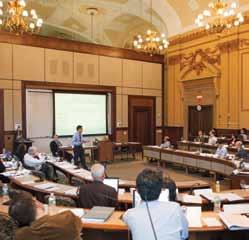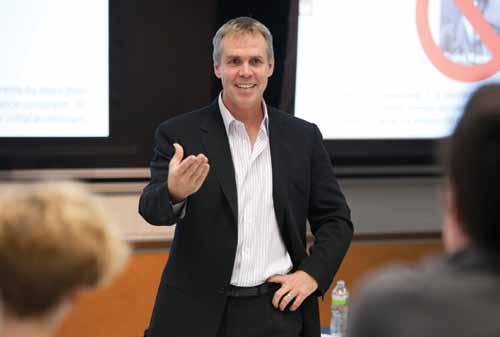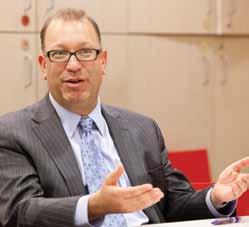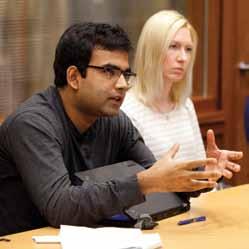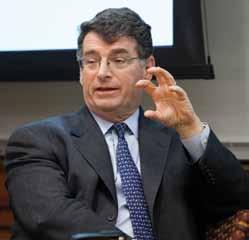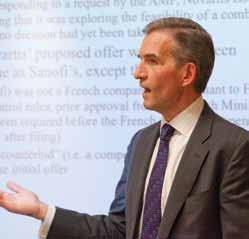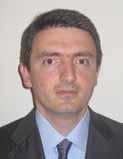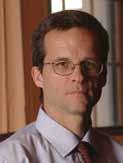annual report 2011–12
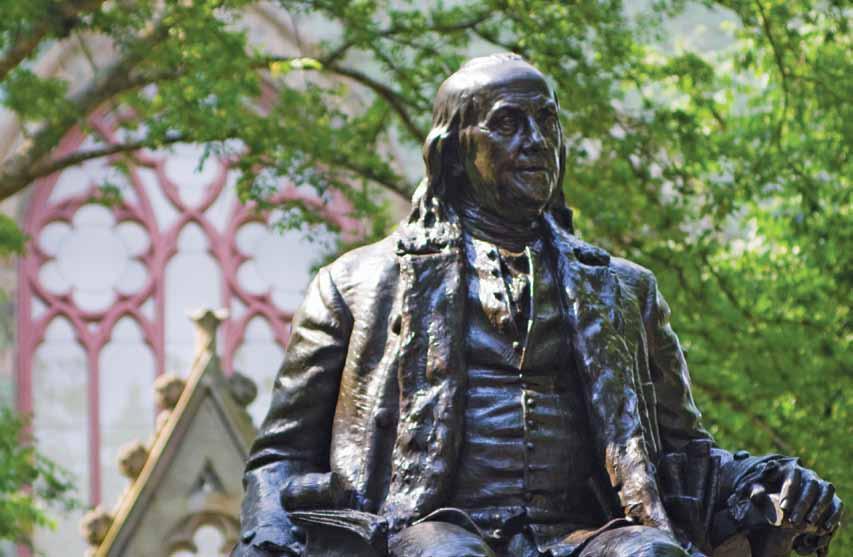
A Joint Research Center of the Law School, the Wharton School, and the Department of Economics in the School of Arts and Sciences at the University of Pennsylvania
Message froM the Co-Chairs: 1
Board of advisors: 2
Message froM the dean: 6
Message froM the Co-direCtors: 7
roundtaBle PrograMs: 9
CorPorate roundtaBle, sPring 2012: 10
CorPorate roundtaBle, fall 2011: 12
CorPorate roundtaBle, sPring 2011: 14
CorPorate roundtaBle, fall 2010: 14
CorPorate roundtaBle, sPring 2010: 16
CorPorate roundtaBle, fall 2009: 16
Panel PrograMs: 19
ChanCery Court PrograMs: 20 insights froM PraCtiCe: 22 leCtures 25 law and entrePreneurshiP: 26 distinguished Jurist: 28
international PrograM leCtures: 30
Past leCtures: 32
aCadeMiC events 35
Penn /nyu ConferenCe, sPring 2012: 36
nyu/Penn ConferenCe, sPring 2011: 36
ile/wharton finanCe seMinars: 38
CurriCular PartnershiPs 40
PuBliCations and PaPers: 42
assoCiate faCulty: 44
institute investors 53

message from the co - chairs
For almost three decades, Penn’s Institute for Law and Economics has contributed to scholarship, policy, and practice on relevant issues of law and economics that affect our country’s businesses and financial institutions.
the Institute’s programs have become increasingly relevant and important in this challenging economic climate, focusing on the issues that the academic, legal, and business communities care about. Today the Institute enjoys an outstanding international reputation for the excellence of its programs, where leaders in business, financial management, legal practice, and academic scholarship candidly discuss the intersection of theory and practice on a host of significant issues. Your participation in these programs is a vital component of their success.
On behalf of the Institute’s Board of Advisors, we want to express our gratitude to everyone who has helped the Institute during this past year, whether through financial contributions or by participation in ILE programs. One of the foremost goals of the Institute is to broaden and diversify our foundation, and once again we have realized that goal.
We are delighted to report some superb additions to our Board of Advisors during the past year. We are pleased to welcome the following new members: Kevin Genirs (Barclays Capital); Jennifer Shotwell (Innisfree M&A Incorporated); Richard D. Smith (Allen & Overy LLP); Andrea E. Utecht (FMC Corporation); and Antonio Weiss (Lazard). These accomplished individuals will greatly enhance the work of the Institute and broaden the composition of our Board. We would also like to welcome The Depository Trust and Clearing Corporation and White & Case LLP as ILE sponsors, through long-standing board members James E. Odell and Morton A. Pierce.
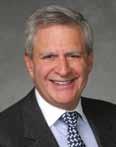

All of the members of our Board give graciously to the Institute, not just financially but also of their time and expertise, and we are grateful for their contributions. Very special thanks must be given to ILE Benefactors Bob Friedman, Paul G. Haaga, Jr., and Skadden, Arps, Slate, Meagher & Flom LLP (through Eric Friedman). Their extraordinary level of financial support enables the Institute to continue to lead the field, and we want to express our sincere appreciation to each of them.
Bill Bratton, Jill Fisch, and Michael Wachter continued to be truly outstanding as co-directors of the Institute. The co-directors’ dedication to all aspects of the Institute’s work and their ability to come up with timely programs and attract the ideal participants to make every program an unqualified success are why ILE is world-renowned as the forum for interesting dialogue on topical issues for corporations and their financial and legal advisors.
Charles “Casey” Cogut
Simpson Thacher & Bartlett LLP
Joseph B. Frumkin
Sullivan & Cromwell LLP
September 2012
board of advisors board of advisors








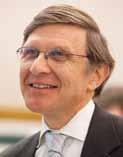





















board of advisors




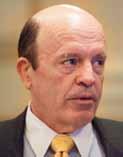



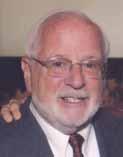


board of advisors














message from the dean
For over twenty years, the Institute for Law and Economics has successfully demonstrated the benefits of a cross-disciplinary perspective.
its programs provide a model for how to build bridges between disciplines by creating ties between schools, between faculty members, between students, and between experts in the field from around the world. ILE combines Penn’s greatest strengths in the Law School, the Wharton School, and the Department of Economics to focus on complex questions that concern all of these fields. The Institute proves that when you bring the right people—judges, deal-makers, regulators, business leaders, lawyers, bankers, policymakers, academics, and more—to convene outside of their own niches, remarkably original insights are generated.
As our world grows more complex every day, the topics the Institute addresses are both exciting and relevant. It is no longer enough to approach complicated questions such as securities regulation, shareholder empowerment, or investment management solely from a legal, economic, or business perspective. Indeed, no significant business issue can be addressed without paying attention to the underlying economic trends and legal regulations. All of ILE’s participants contribute to and benefit from the profound understanding such analysis affords.
In addition to its unique focus, another of the Institute’s strengths is the variety of programs it offers. The roundtables—ILE’s signature events—bring together distinguished members of the bar, judiciary, government, business world, and academia for open discussion and intellectual exploration. ILE’s public lectures by leading jurists, executives, and entrepreneurs attract participants from all sectors of the University and from the wider community. During the past year the outstanding talks, panels, and conferences organized by the Institute covered a wide range of topics and programs, from corporate finance and corporate governance to private equity, hedge funds, and mutual funds, as well as large-scale entrepreneurship and management.
Since my cross-disciplinary vision for the Law School and the purposes of the Institute for Law and Economics are so similar, it is personally gratifying to me that the Institute is generously supported by contributors who understand the importance of what we do and the unique position the Institute holds. Many of these contributors also serve as members of the Institute’s Board of Advisors, helping to plan the direction and focus of the programs and lending their expertise as panelists and commentators for Institute events.

ILE’s extraordinary co-chairs, Casey Cogut and Joe Frumkin, have my particular thanks for their many exceptional contributions. Like all who serve as advisors for ILE, Casey and Joe contribute their very valuable time and expertise, in addition to their numerous contacts in the legal and business communities. ILE has benefited substantially from their leadership.
I must also thank the three eminent professors who lead the Institute for Law and Economics—Michael Wachter, Jill Fisch, and Bill Bratton. It is because of their commitment and enthusiasm that ILE ranks among the premier institutions of its kind.
I extend the deepest appreciation to all ILE supporters and participants for their commitment and investment during the past year. With the proper support and sponsorship, the Institute for Law and Economics has limitless potential for growth and expansion in the future. We welcome others to join in backing and participating in this extremely worthwhile endeavor.
miChael a. Fitts, Dean and Bernard G. Segal Professor of Law, University of Pennsylvania Law School
September 2012
message from the co - directors
The Institute for Law and Economics continues to be the legal academy’s most dynamic corporate law program.
the Institute for Law and Economics endeavors to sponsor the legal academy’s deepest and most compelling corporate law programs. We believe this year’s events met this demanding aspiration. ILE continues to be a prominent venue for encounters among leading corporate practitioners, lawmakers, and academics and for conversations across academic disciplines. We commit ourselves to achieving an even higher level of seriousness of endeavor and participant engagement in the future.
Our Fall Corporate Roundtable looked at current issues in securities regulation and examined the SEC from an institutional perspective—a hot topic in light of events like the Business Roundtable decision and the Citigroup litigation. Our Spring Roundtable considered the evolving issue of shareholder empowerment in Delaware corporate law.
Our public lecture series highlighted ILE’s close relationship with the Delaware courts. In recognition of the transition on the Delaware Chancery Court, we hosted both William Chandler, the outgoing Chancellor, and Leo Strine, the new Chancellor, as Distinguished Jurist lecturers.
Our Law and Entrepreneurship lecture came from Paul Haaga, who spoke about the principles of money management and the distinctive investment style employed by Capital Research and Management Company, the investment advisor for the American Funds. Corporate governance retained a place at the top of our agenda as well. Our Fall Insights from Practice program explored the Air Products/Airgas takeover battle. Hideki Kanda from the University of Tokyo delivered a lecture on comparative corporate governance as part of our International Programs Series. Our Chancery Court program featured several leading investment bankers and focused on conflicts of interest in mergers and acquisitions and other current financial topics.
We successfully continued our cross-disciplinary academic initiatives. The Law and Finance series, held in cooperation with Wharton’s Finance Department as a regular part of its Finance workshop, featured papers on financial regulation from Eric Talley, Rosalinde and Arthur Gilbert Professor of Law at University of California-Berkeley Law School, and Paul Pfleiderer, C.O.G. Miller Distinguished Professor of Finance at Stanford University Graduate School of Business. In February, we co-hosted the eighth annual Penn/NYU Law and Finance Conference, a joint venture of the Institute for Law and Economics, the Wharton Financial Institutions Center, and the Pollack Center for Law and Business at New York University.



As in the past, our Institute’s greatest strength lies in the quality of our supporters and their active participation in our programs. Our board members and sponsors make our programs possible, not only as financial supporters but as key participants and co-organizers. We are especially grateful for the dedicated and enthusiastic work of our board chairs, Casey Cogut of Simpson Thacher & Bartlett LLP and Joseph Frumkin of Sullivan & Cromwell LLP.We are delighted to welcome four new board members: Kevin Genirs (Barclays Capital); Jennifer Shotwell (Innisfree M&A Incorporated); Richard D. Smith (Allen & Overy LLP); Andrea E. Utecht (FMC Corporation); and Antonio Weiss (Lazard). We are also delighted to welcome The Depository Trust and Clearing Corporation and White & Case LLP as sponsors, thanks to our dedicated board members Jim Odell and Mort Pierce.
William W. Bratton, Co-Director, Institute for Law and Economics
Nicholas F. Gallicchio Professor of Law
Jill e. FisCh, Co-Director, Institute for Law and Economics
Perry Golkin Professor of Law
miChael l. WaChter, Co-Director, Institute for Law and Economics
William B. Johnson Professor of Law and Economics
September 2012


r oundtable p rograms
At the heart of the Institute’s work is the roundtable series, which brings members of the Institute’s associate faculty and other academics together with corporate executives, practicing attorneys, judges, public policymakers, and students. Each roundtable takes up current issues that emerge from the research and teaching of the Institute and provides a forum for lively discussion.
OVER THE YEARS, the Institute has sponsored roundtables on a broad range of topics—including labor law and bankruptcy, as well as corporate law, governance, and finance—engaging the interest and participation not only of scholars but also of leaders in the business and public sectors. The high caliber of the participants guarantees that each affair is intense and informative. ILE’s longstanding off-the-record policy for the roundtables is often the impetus for an energetic and wide-ranging exchange of ideas among some of the nation’s most accomplished scholars, attorneys, and business people.
Adapting to the New Shareholder Centric Reality: Creditor Protection
edward B. rock, Saul A. Fox Distinguished Professor of Business Law, University of Pennsylvania Law School
corporate law seeks to control three sorts of agency costs: managers v. dispersed shareholders; controlling v. noncontrolling shareholders; and shareholders v. creditors. Because the magnitude of these agency costs is interrelated, changes in the severity of one sort of agency cost will likely affect the severity of other varieties. n shareholder-centric corporate law systems like the u K, creditor protection is a prominent feature. By contrast, in manager-centric corporate law systems, as in the us over much of the last 80 years, corporate law’s creditor protection features seem to atrophy. what happens when a system shifts from a manager-centric system to a shareholdercentric system? how can it adapt to the new reality and respond to the increased need for creditor protection?
n this article, argue that since the early 1980s, the u s system has shifted from a manager-centric system to a shareholder-centric system. i this is right, then the shareholder-creditor agency cost problem potentially returns as a central concern of corporate law. further, to the extent that we have evolved into a shareholder-centric system through changes in practice rather than law, the law is unlikely to have kept pace. this article addresses the question of how the u s corporate law system can adapt to this new shareholder-centric reality and the shareholdercreditor agency costs that accompany it.
Thirty Years of Shareholder Rights and Firm Valuation
martijn cremers, Associate Professor of Finance, Yale School of Management allen ferrell, Harvey Greenfield Professor of Securities Law, Harvard Law School
this paper introduces a new hand-collected shareholder rights dataset tracking restrictions on shareholder rights at approximately 1,000 firms over 1978-1989. in conjunction with the 1990-2006 irrc data, we track firms’ shareholder rights over thirty years. most governance changes occurred during the 1980s. we find a robustly negative association between restrictions on shareholder rights (using the g- ndex as a proxy) and tobin’s Q. the negative association only appears after the judicial approval of the poison pill and antitakeover defenses more generally in the landmark delaware supreme court decision of Moran v. Household in 1985. this decision was an unanticipated, exogenous shock that increased the importance of shareholder rights, suggesting that shareholder rights have become more strongly associated with firm valuation in the post-Moran era.
APRIL 20, 2012
Welcome
Michael A. Fitts, Dean and Bernard G. Segal Professor of Law, University of Pennsylvania Law School
Morning Session
adapting to the new shareholder Centric reality: Creditor protection
Edward B. Rock, Saul A. Fox Distinguished Professor of Business Law, University of Pennsylvania Law School
commentators
Isaac D. Corré, Senior Managing Director, Eton Park Capital Management
Reinier Kraakman, Ezra Ripley Thayer Professor of Law, Harvard Law School
thirty years of shareholder rights and Firm Valuation
Martijn Cremers, Associate Professor of Finance, Yale School of Management
Allen Ferrell, Harvey Greenfield Professor of Securities Law, Harvard Law School
commentators
Bo Becker, Assistant Professor of Business Administration, Harvard Business School
Paul K. Rowe, Wachtell, Lipton, Rosen & Katz
Afternoon Session
panel on Delaware law and shareholder empowerment: how it has evolved and Where it is going
moderators
William W. Bratton, Nicholas F. Gallicchio Professor of Law, University of Pennsylvania Law School
Jill E. Fisch, Perry Golkin Professor of Law, University of Pennsylvania Law School
panelists
Frederick H. Alexander, Morris, Nichols, Arsht & Tunnell LLP
William T. Allen, Nusbaum Professor of Law and Business, New York University School of Law
William C. Coffey, Senior Vice President and Deputy General Counsel, Fidelity Investments
Stephen Fraidin, Kirkland & Ellis LLP
Perry Golkin, Advisory Partner, Kohlberg Kravis Roberts & Co.
Hon. Jack B. Jacobs, Justice, Supreme Court of Delaware






3
Chancery; Joseph B. Frumkin, Sullivan & Cromwell LLP; Christopher Young, Credit Suisse.
4 Front row: Hon. Jack B. Jacobs, Supreme Court of Delaware; William T. Allen, New York University School of Law; Perry Golkin, Kohlberg Kravis Roberts
5
6 Front row: William D. Anderson, Jr., Goldman, Sachs & Co.; Roy J. Katzovicz, Pershing Square Capital Management, L.P. Middle row: Marc H. Kushner, Lazard Frères & Co. LLC; Bo Becker, Harvard Business School; Edward B. Rock, University of Pennsylvania Law School. Back row: David A. Skeel, Jr., University of Pennsylvania Law School.

The Political Economy of Fraud on the Market
william w. Bratton, Nicholas F. Gallicchio Professor of Law, University of Pennsylvania Law School
michael L. wachter, William B. Johnson Professor of Law and Economics, University of Pennsylvania Law School
the fraud on the market class action no longer enjoys substantive academic support. f, as the consensus view now has it, fraud on the market makes no policy sense, then its abolition would seem to be the next logical step. Yet most observers continue to accept it on the same ground cited by the supreme court in 1964 when it first implied a private right of action under the 1934 act in J.I. Case v. Borak—a private enforcement supplement is needed in view of inadequate sec resources. restating, even a private enforcement supplement that makes no sense is better than no private enforcement supplement at all.
this article questions this backstop policy conclusion, highlighting the sticking points retarding movement toward fraud on the market’s abolition and mapping a plausible route to a superior enforcement outcome. we recommend that private plaintiffs be required to meet an actual reliance standard. we look to the securities and exchange commission, rather than congress or the courts, to initiate the change—it is the lawmaking institution most responsible for the unsatisfactory status quo and best equipped to propose a corrective. Because an actual reliance requirement would substantially diminish the flow of private litigation, we also look to a compensating step up in public enforcement capability. more specifically, the sec enforcement division needs enough funding to redirect its efforts away from the enterprise toward culpable individuals.
“Publicness” in Contemporary Securities Regulation donald c Langevoort, Thomas Aquinas Reynolds Professor of Law, Georgetown University Law Center robert B. thompson, Peter P. Weidenbruch Jr. Professor of Business Law, Georgetown University Law Center
this article surveys some of the history of the publicprivate divide in securities regulation, and looks at how technology has blurred the distinctions that have long been used by regulators. it looks at the questions surrounding public company status under the ’34 act. we suggest abandoning the 500 shareholder record ownership in favor of a standard focusing on trading volume. we consider but ultimately reject the idea that accredited or otherwise sophisticated, wealthy investors not be counted in assessing public status for issuers. and we offer some thoughts about balancing costs and benefits with respect to drawing the line between public and private issuers.
much of the sec’s policymaking along the public-private divide is reactive, a delayed response—largely invisible except to legal elites—to regulatory arbitrage efforts by sophisticated lawyers and clients, who use both technical legal knowledge and political influence to protect the spaces they claim. we see this as a growing problem: how is the sec at a time of both financial and political stress, to address increasingly rapid technological innovation. we have no suggestions beyond addressing those stresses, but do think that the nature of informal (and not necessarily enforcement-driven) sec lawmaking be given more scholarly attention that it has gotten.
DECEMBER
9, 2011
Welcome
Michael A. Fitts, Dean and Bernard G. Segal Professor of Law, University of Pennsylvania Law School
Morning Session
the political economy of Fraud on the market
William W. Bratton, Nicholas F. Gallicchio Professor of Law, University of Pennsylvania Law School
Michael L. Wachter, William B. Johnson Professor of Law and Economics, University of Pennsylvania Law School
commentators
James D. Cox, Brainerd Currie Professor of Law, Duke University School of Law
Linda Chatman Thomsen, Davis Polk & Wardwell LLP
“publicness” in Contemporary securities regulation
Donald C. Langevoort, Thomas Aquinas Reynolds Professor of Law, Georgetown University Law Center
Robert B. Thompson, Peter P. Weidenbruch Jr. Professor of Business Law, Georgetown University Law Center
commentators
Joshua F. Bonnie, Simpson Thacher & Bartlett LLP
Adam C. Pritchard, Professor of Law, The University of Michigan Law School
Afternoon Session
panel on the seC from an institutional perspective
moderators
William W. Bratton, Nicholas F. Gallicchio Professor of Law, University of Pennsylvania Law School
Michael L. Wachter, William B. Johnson Professor of Law and Economics, University of Pennsylvania Law School
panelists
David M. Becker, Cleary Gottlieb Steen & Hamilton LLP
Jill E. Fisch, Perry Golkin Professor of Law, University of Pennsylvania Law School
Harvey J. Goldschmid, Dwight Professor of Law, Columbia Law School
Roy J. Katzovicz, Chief Legal Officer and Investment Team Member, Pershing Square Capital Management, L.P.
Simon M. Lorne, Vice Chairman and Chief Legal Officer, Millennium Management LLC
Troy A. Paredes, Commissioner, U.S. Securities and Exchange Commission







3
7
6
5

APRIL 8, 2011
Welcome
Michael A. Fitts, Dean and Bernard G. Segal Professor of Law, University of Pennsylvania Law School
Morning Session
transaction Consistency and the new Finance in Bankruptcy
Thomas H. Jackson, Distinguished University Professor in Political Science and Business Administration and President Emeritus, University of Rochester
David A. Skeel, Jr., S. Samuel Arsht Professor of Corporate Law, University of Pennsylvania Law School
commentators
Richard K. Kim, Wachtell, Lipton, Rosen & Katz
Mark J. Roe, David Berg Professor of Law, Harvard Law School
systemic risk after Dodd-Frank: Contingent Capital and the need for regulatory strategies
Beyond oversight
John C. Coffee, Jr., Adolf A. Berle Professor of Law, Columbia Law School

commentators
Barry E. Adler, Charles Seligson Professor of Law, New York University School of Law
Randall D. Guynn, Davis Polk & Wardwell LLP
Afternoon Session
panel on issues in Bankruptcy and resolution
moderators
William W. Bratton, Professor of Law, University of Pennsylvania Law School
Michael L. Wachter, William B. Johnson Professor of Law and Economics, University of Pennsylvania Law School
panelists
Donald S. Bernstein, Davis Polk & Wardwell LLP
Martin J. Bienenstock, Dewey & LeBoeuf LLP
Richard J. Herring, Jacob Safra Professor of International Banking and Professor of Finance, The Wharton School
William F. Kroener, III, Sullivan & Cromwell LLP
Richard Levin, Cravath, Swaine & Moore LLP
Harvey R. Miller, Weil, Gotshal & Manges LLP
James Millstein, Former Chief Restructuring Officer, U.S. Department of the Treasury
DECEMBER 10, 2010
Welcome
Michael A. Fitts, Dean and Bernard G. Segal Professor of Law, University of Pennsylvania Law School
Morning Session
high Water marks in Competitive Capital markets
Susan Kerr Christoffersen, Associate Professor of Finance, Rotman School of Management, University of Toronto
David K. Musto, Ronald O. Perelman Professor in Finance, The Wharton School
commentators
Steven J. Fredman, Schulte Roth & Zabel LLP
Ronald J. Gilson, Marc and Eva Stern Professor of Law and Business, Columbia Law School
unfulfilled expectations?
the returns to international hedge Fund activism
Marco Becht, Professor, University of Brussels
Julian Franks, Professor of Finance, London Business School
Jeremy Grant , Ph.D. Candidate, University of Cambridge
commentators
Isaac Corré, Senior Managing Director, Eton Park Capital Management
Joseph A. McCahery, Professor of Financial Market Regulation and Professor of International Economic Law, Tilberg UniversityTilburg Law and Economics Center
Afternoon Session
panel on hedge Funds under Fire?
moderators
William W. Bratton, Professor of Law, University of Pennsylvania Law School
Michael L. Wachter, William B. Johnson Professor of Law and Economics, University of Pennsylvania Law School
panelists
Brian Breheny, Skadden, Arps, Slate, Meagher & Flom LLP
Roy Katzovicz, Chief Legal Officer, Pershing Square Capital Management, L.P.
Faiza J. Saeed, Cravath, Swaine & Moore LLP
Bruce Silverstein, Young Conaway Stargatt & Taylor, LLP
Hon. Leo E. Strine, Jr., Vice Chancellor, Delaware Court of Chancery
John Suydam, Chief Legal Officer, Apollo Global Management, LLC
Gregory V. Varallo, Richards, Layton & Finger, P. A.






3
Columbia Law School.
4 Front row: Roy J. Katzovicz, Pershing Square Capital Management, L.P.; Faiza J. Saeed, Cravath, Swaine & Moore LLP; Bruce L. Silverstein, Young Conaway Stargatt & Taylor, LLP. Middle row: Ronald J. Gilson, Columbia Law School; James E. Odell, UBS Investment Bank; Daniel M. Hawke, Philadelphia Regional Office, SEC; Roberta Romano, Yale Law School. Back row: Christine Hurt, University of Illinois College of Law; James C. Spindler, The University of Texas at Austin School of Law; David G. Clarke, The Griffing Group, Inc.; Robert C. Clark, Harvard Law School.
5 Donald S. Bernstein, Davis Polk & Wardwell LLP.
6 Front row: Louis J. Bevilacqua, Cadwalader, Wickersham & Taft LLP; Hon. Jack B. Jacobs, Supreme Court of Delaware; Marc Weingarten, Schulte Roth & Zabel LLP. Middle row: Christopher Young, Credit Suisse; David K. Musto, The Wharton School; Joseph A. McCahery, Tilburg University. Back row: Christopher Foulds, Skadden, Arps, Slate, Meagher & Flom, LLP; Kent S. Hughes, Egan-Jones Group, Ltd.; April Klein, NYU Stern School of Business.
APRIL 9, 2010
Welcome
Michael A. Fitts, Dean and Bernard G. Segal Professor of Law, University of Pennsylvania Law School
Morning Session
rethinking the regulation of securities intermediaries
Jill E. Fisch, Perry Golkin Professor of Law, University of Pennsylvania Law School
commentators
Tamar Frankel, Michaels Faculty Research Scholar and Professor of Law, Boston University School of Law
Eric D. Roiter, Former General Counsel, Fidelity Management & Research
mutual Fund performance advertising: inherently and materially misleading?
Alan R. Palmiter, Professor of Law, Wake Forest University School of Law
Ahmed Taha, Professor of Law, Wake Forest University School of Law

commentators
Donald G. Bennyhoff, Senior Investment Analyst, Vanguard
Eric Zitzewitz, Associate Professor of Economics, Dartmouth College
Afternoon Session
panel on the governance of mutual Funds
moderators
Jill E. Fisch, Perry Golkin Professor of Law, University of Pennsylvania Law School
Michael L. Wachter, William B. Johnson Professor of Law and Economics, University of Pennsylvania Law School
panelists
John E. Baumgardner, Jr., Sullivan & Cromwell LLP
Edwin J. Elton, Nomura Professor of Finance, NYU Stern School of Business
Scott Goebel, Senior Vice President and General Counsel, Fidelity Management & Research Company
Susan B. Kerley, Strategic Management Advisors, LLC
Ryan Leggio, Mutual Fund Analyst, Morningstar, Inc.
Jeffrey S. Puretz, Dechert LLP
DECEMBER 11, 2009
Welcome
Michael A. Fitts, Dean and Bernard G. Segal Professor of Law, University of Pennsylvania Law School
Morning Session
embattled Ceos
Marcel Kahan, George T. Lowy Professor of Law, New York University School of Law
Edward B. Rock, Saul A. Fox Distinguished Professor of Business Law, University of Pennsylvania Law School
commentators
Roy J. Katzovicz, Chief Legal Officer, Pershing Square Capital Management
Reinier H. Kraakman, Ezra Ripley Thayer Professor of Law, Harvard Law School
the Case against shareholder empowerment
William W. Bratton, Peter P. Weidenbruch, Jr. Professor of Business Law, Georgetown University Law Center
Michael L. Wachter, William B. Johnson Professor of Law and Economics, University of Pennsylvania Law School
commentators
William D. Anderson, Jr., Managing Director, Goldman, Sachs & Co.
Roberta Romano, Oscar M. Ruebhausen Professor of Law, Yale Law School
Afternoon Session
panel on the reform agenda
moderators
Jill E. Fisch, Perry Golkin Professor of Law, University of Pennsylvania Law School
Edward B. Rock, Saul A. Fox Distinguished Professor of Business Law, University of Pennsylvania Law School
panelists
Hon. Jeffrey W. Bullock, Secretary of State, Delaware Department of State
Lucian A. Bebchuk, William J. Friedman and Alicia Townsend
Friedman Professor of Law, Economics, and Finance, Harvard Law School
Glenn Booraem, Principal and Assistant Fund Controller, Vanguard
Marcy Engel, Chief Operating Officer and General Counsel, Eton Park Capital Management
Scott Goebel, Senior Vice President and General Counsel, Fidelity Management & Research Company
Robert McCormick, Chief Policy Officer, Glass, Lewis & Co., LLC






2 Susan B. Kerley, Strategic Management Advisors, LLC.
3 Front row: Jeffrey W. Bullock, Delaware Department of State; Marcy Engel, Eton Park Capital Management. Middle
4 Hon. Travis Laster, Delaware Court of Chancery; Charles I. Cogut, Simpson Thacher & Bartlett LLP.
5 Front row: Edwin J. Elton, Stern School of Business, New York University. Middle row: Gérard Hertig, Swiss Institute of Technology; Eric Zitzewitz, Dartmouth College; Matthew R. Clark, Morris, Nichols, Arsht & Tunnell LLP; Jill E. Fisch, University of Pennsylvania Law School; Donald G. Bennyhoff, Vanguard; Randall S. Thomas, Vanderbilt University Law School; Sarah E. Cogan, Simpson Thacher & Bartlett LLP; Glenn Booraem, Vanguard; William W. Bratton, Georgetown University Law Center. Back row: Mary K. Stokes, Blank Rome LLP; William A. Birdthistle, Chicago-Kent College of Law, Illinois Institute of Technology; Talyana T. Bromberg, Grant & Eisenhofer P.A.
6 Front row: Scott Goebel, Fidelity Management & Research Company; Robert McCormick, Glass Lewis & Co, LLC; Glenn Booraem, Vanguard. Middle row: Merritt B. Fox, Columbia Law School.


panel p rograms
In addition to the roundtable series, the Institute hosts several panel programs each year that explore important topics in the areas of law and finance. The panelists on these programs provide students and other attendees with real-world examples of the complex situations they face in their professional careers.
THESE PROGRAMS are usually followed by Corporate Governance Dinners with further commentary and discussion. The Corporate Governance Dinners provide an opportunity for off-the-record conversation among presenters and members of the board of advisors, their invited colleagues, and the Institute’s associate faculty.
APRIL 10, 2012
Function and impartiality: Deciding Between using a Conflicted Full service Bank and a Conflict-Free Bank
This program looked at the role of investment banks in providing advisory services in mergers and acquisitions. Investment banks provide financial advice on M&A transactions, as well as the ability to arrange for the financing necessary to complete the deal. However, investment banks are vulnerable to conflicts of interest, since their equity research and trading departments may be dealing in the shares of the companies they are advising. Although the SEC requires investment banks to impose a Chinese wall between their corporate finance and their equity research and trading divisions, the investment banking sector has been criticized for the opacity of its operations. These potential conflicts of interest have led to the growth of independent investment banking firms that offer specialized M&A advice but not financing. The panelists considered the benefits and trade-offs of conducting M&A transactions with full service investment banks and conflict-free banks.
MARCH 29, 2011
illegitimate kingmaker or effective Voice of genuine stockholder sentiment?: the role of institutional shareholder services in Contested Corporate elections
This program examined the role and influence of Institutional Shareholder Services in making recommendations and voting shareholder proxies for institutional investors. Proxy services such as ISS play a key role in the voting process because institutional shareholders turn to them for advice when voting billions of shares at annual meetings. The panel explored the inner workings of ISS and how it views its own influence on the voting process. The panel discussed ISS’s role and influence from the perspectives of a large mutual fund company and several proxy solicitation firms. The panelists also considered the overarching questions of what should a proxy advisor’s role be, how much influence they should exercise, and what kind of regulation is needed for them.
moderators
Hon. Leo E. Strine, Jr., Chancellor, Chancery Court of Delaware
Michael L. Wachter, William B. Johnson Professor of Law and Economics, University of Pennsylvania Law School
panelists
Joel E. Friedlander, Bouchard Margules & Friedlander
Robert A. Kindler, Vice Chairman and Global Head of M&A, Morgan Stanley
Eileen Nugent, Skadden, Arps, Slate, Meagher & Flom LLP
Antonio Weiss, Global Head of Investment Banking, Lazard




3
2
1
7
6
4
moderators
Hon. Leo E. Strine, Jr., Vice Chancellor, Chancery Court of Delaware
Michael L. Wachter, William B. Johnson Professor of Law and Economics, University of Pennsylvania Law School
panelists
Glenn Booraem, Principal and Fund Controller, The Vanguard Group
Daniel H. Burch, Chairman & CEO, MacKenzie Partners, Inc.
Jill Fisch, Perry Golkin Professor of Law, University of Pennsylvania Law School
Alan Miller, Co-Chairman, Innisfree M&A Incorporated
Christopher Young, Managing Director and Head of the Takeover Defense Practice, Credit Suisse




OCTOBER
4, 2011
Our fall Insights from Practice program looked at the recentlysettled case of Air Products & Chemicals, Inc. v. Airgas, Inc. This case addressed the fundamental corporate law question of who gets to decide when and if a corporation is for sale. The case was the response to a shareholder rights plan used by the Airgas board of directors to ward off an unsolicited Air Products offer that was believed by the Airgas board to undervalue the company. The Court’s opinion in Air Products & Chemicals, Inc. v. Airgas, Inc. ruled in favor of Airgas and its board of directors, concluding that the power to defeat an inadequate hostile tender offer ultimately lies with the board of directors. The panelists for the program included lawyers for both the plaintiffs and the defendants, as well as a Delaware judge and an investment professional, who analyzed the effects of the case on corporate law and on the financial markets.
panelists
Gary A. Bornstein, Cravath, Swaine & Moore LLP
Isaac D. Corré, Senior Managing Director, Eton Park Capital Management
Hon. Jack Jacobs, Justice, Supreme Court of Delaware
Mark Lebovitch, Bernstein Litowitz Berger & Grossmann LLP
Theodore N. Mirvis, Wachtell, Lipton, Rosen & Katz
Minh Van Ngo, Cravath, Swaine & Moore LLP
Donald J. Wolfe, Jr., Potter Anderson & Corroon LLP


OCTOBER
21, 2010
This Insights from Practice panel program focused on what it means to be a director of a public company in 2010. The panelists shared their perspectives on the fiduciary duties of directors and how these might differ depending on the type of director and how they were appointed. The composition and leadership of boards of directors was also discussed. The panel then reviewed provisions in the Dodd-Frank legislation that affected boards of directors and talked about their impact so far on the activities of boards. The panelists also discussed several hypothetical cases drawn from the business news headlines on how directors should react in crisis situations affecting the corporation.
panel co-chairs
Charles I. Cogut, Simpson Thacher & Bartlett LLP
Hon. Myron T. Steele, Chief Justice, Supreme Court of Delaware
panelists
Robert L. Friedman, Senior Managing Director, The Blackstone Group L.P., Director of Axis Capital Holdings Limited, TRW Automotive Holdings Corp., FGIC Corporation and The India Fund, Inc.
Roger Kimmel, Vice Chairman, Rothschild Inc., Non-Executive Chairman of the Board of Endo Pharmaceuticals Inc., Director of PG&E Corporation and Schiff Nutrition International
David M. Silk, Wachtell, Lipton, Rosen & Katz
Douglas Steenland, Former CEO, Northwest Airlines, Director of Delta Air Lines, American International Group, Digital River Corp., Chrysler Group, Hilton Worldwide, and Performance Food Group







l ectures
The Law and Entrepreneurship Lecture and the Distinguished Jurist Lecture are the Institute’s principal public programs. In sponsoring these events, the Institute aims to spotlight and honor lawyers who have led noteworthy careers and made significant contributions as corporate executives and entrepreneurs, or as jurists at the state and federal levels. We also sponsor lectures in cooperation with Penn Law’s International Program.


AUDIENCES ARE DRAWN from all sectors of the University and the legal and business communities. These eminent speakers hold particular appeal and inspiration for students of Penn’s Law School and the Wharton School, with whom they talk informally at receptions following each lecture. The Law and Entrepreneurship lecture is supported in part by the Ronald N. Rutenberg Fund.


NOVEMBER 15, 2011
too Dull for Davos: my life in long-only, objective-Based, active money management and Why i think it still makes sense
Paul G. Haaga, Jr., Chairman of the Board, Capital Research and Management Company
Paul G. Haaga, Jr. is Chairman of the Board of Capital Research and Management Company. He is Vice Chairman of the fixedincome funds in the American Funds Group and Chairman of Capital International Fund. He is also an officer and/or director of a number of other CRMC-managed mutual funds.
Prior to joining Capital in 1985, Paul was a partner in the law firm of Dechert Price & Rhoads (now known as Dechert) in Washington, D.C. From 1974 to 1977, he was a senior attorney for the Division of Investment Management of the U.S. Securities and Exchange Commission. Paul earned a bachelor’s degree
MARCH 2, 2011
Competitive places and inner City opportunities: reflections on 25 years of Community investment
Jeremy Nowak, President and Chief Executive Officer, The Reinvestment Fund
Jeremy Nowak is the President of The Reinvestment Fund, a community development financial institution that manages $700 million. The Reinvestment Fund (TRF) provides financing in support of affordable housing, small businesses, commercial real estate and community facilities. TRF has allocated more than $1 billion, leveraging $3.5 billion in development capital.
TRF is a thought leader in the creative use of geo-spatial data to facilitate investments into distressed communities. Its proprietary mapping tool, PolicyMap, is the most comprehensive web-enabled data base for location-based intelligence.
TRF led the movement to finance supermarkets in lowincome communities, first as manager of the Pennsylvania Fresh Food Financing Initiative and today as one of the architects of the White House’s Healthy Food Financing Initiative.
Mr. Nowak is the Vice Chair of the Federal Reserve Bank of Philadelphia and a member of the Fed’s Council of Chairs. He is also a board member of the Pennsylvania Housing Finance Agency, the agency responsible for billions of dollars of annual bond and tax credit financing.
in economics from Princeton University, an M.B.A. from the Wharton School, and a J.D. from the University of Pennsylvania Law School.
He is a member of the Executive Committee (Chairman from 2002–2004, Vice Chairman from 2004-2006) of the Board of Governors of the Investment Company Institute (the national association of the U.S. mutual fund industry) and serves as President of the Board of Trustees of the Los Angeles County Museum of Natural History. He is a trustee of the Huntington Library, Museum and Gardens in San Marino, California, and Chairman of the Board of Overseers of the University of Pennsylvania Law School. Paul is a member of the National Public Radio (NPR) Board of Directors. He has also served as president and Major Gifts chair for Princeton’s Class of 1970 and is a trustee of the Princeton Rugby Endowment.


He was the founding Chair of the Board of Mastery Charter Schools, a network of inner city schools recognized as the most effective management organization in the nation for turning around low performing schools. And he was the founding Board Chair of Alex’s Lemonade Stand, a charity that supports pediatric cancer research and in six years has raised more than $35 million from lemonade stands held by thousands of families and children.
Mr. Nowak is the author of numerous reports and articles including recent work on creativity and neighborhood development. He holds an undergraduate degree in philosophy (Pennsylvania State University, Phi Beta Kappa, 1973) and a Ph.D. in cultural anthropology (New School for Social Research, 1986). He was a Fellow at the Aspen Institute’s program for leaders in education and is a member of Harvard University’s roundtable on social enterprise and poverty.
Mr. Nowak has received numerous awards including the Philadelphia Award (1995), the city’s highest civic honor; as well as honorary doctorates from Villanova University (2000) and La Salle University (2008).





FEBRUARY 15, 2012
regular order as equity
Hon. Leo E. Strine, Jr., Chancellor, Delaware Court of Chancery
Chancellor Leo E. Strine, Jr. became Chancellor of the Delaware Court of Chancery in 2011 after serving as a Vice Chancellor since 1998. Since he joined the Court, Chancellor Strine has written numerous influential and provocative opinions.

Immediately before becoming a member of the Court of Chancery, Chancellor Strine was Counsel to Governor Thomas R. Carper of the State of Delaware. Before becoming Counsel to Governor Carper in January 1993, Chancellor Strine was a corporate litigator at the firm of Skadden, Arps, Slate, Meagher & Flom. Prior to that, Chancellor Strine was law clerk to Judge Walter K. Stapleton of the U.S. Court of Appeals for the Third Circuit and Chief Judge John F. Gerry of the U.S. District Court for the District of New Jersey. Chancellor Strine graduated magna cum laude from the University of Pennsylvania Law School in 1988, and was selected as a member of the Order of the Coif. In 1985, he received his Bachelor’s Degree summa cum laude from the University of Delaware and was selected as a member of Phi Beta Kappa.
OCTOBER
25, 2011
the Delaware Court of Chancery from 1989 - 2011: an insider’s View
Hon. William B. Chandler III, Former Chancellor, Delaware Court of Chancery

Chancellor William B. Chandler III is a partner at Wilson Sonsini Goodrich & Rosati, where he advises both public and private clients in connection with corporate governance matters, special committee assignments, internal investigations, and merger and acquisition transactions. He currently serves on the firm's Policy Committee.
Chancellor Chandler joined the firm from the Delaware Court of Chancery, the nation's leading court for corporate law cases, particularly those relating to change of control and other corporate law issues. He was appointed Chancellor in 1997, after serving as Vice Chancellor since 1989. Widely regarded as one of the country's most influential judges on issues of corporate law and governance, he issued more than a thousand opinions and presided over some of the most contentious and high-profile corporate law disputes in the country, including those involving The Walt Disney Company, Yahoo, Microsoft, Hewlett-Packard, eBay, Citigroup, Dow Chemical, and, most recently, the Air Products/Airgas dispute. Many of his rulings have become required reading for M&A and business law practitioners, and he has written and lectured widely on numerous critical corporate law issues.

Prior to his appointment to the Court of Chancery, Chancellor Chandler served as resident judge of the Delaware Superior Court from 1985 to 1989. He previously was an associate with Morris, Nichols, Arsht & Tunnell and served as legal counsel to Pete duPont, the former governor of Delaware. Earlier in his career, Chancellor Chandler taught commercial law, legislative process, and remedies at the University of Alabama School of Law. He also has taught law courses at the Delaware Law School of Widener University, Washington University School of Law, Seattle University School of Law, Ohio State University, University of Georgia, Vanderbilt University, and the University of Nevada, Las Vegas. Chancellor Chandler is a member of the American Law Institute and a trustee of the Yale Center for Corporate Governance, the University of Delaware, and the Weinberg Center for Corporate Governance.






MARCH 12, 2012
puzzles on Comparative Corporate governance: rethinking the linkage Between laws and ownership
Hideki Kanda, Faculty of Law, The University of Tokyo

Hideki Kanda was born in 1953 and received an LL.B. from the University of Tokyo in 1977. His main areas of specialization include commercial law, corporate law, banking regulation and securities regulation. Mr. Kanda has published articles in both Japanese and English in major legal journals on various aspects of corporate law and related matters. He has been a visiting professor of law at the University of Chicago Law School and a visiting professor at Harvard Law School.
APRIL 13, 2011
Financial sector regulation in india: evolution and the road ahead
KP Krishnan, Secretary, Economic Advisory Council of the Prime Minister of India
Dr. KP Krishnan serves as Secretary of the Economic Advisory Council of the Prime Minister of India, a position he took up in July 2010. For the preceding five years, Dr. Krishnan served as Joint Secretary of the Capital Markets Division of the Indian Department of Economic Affairs, where he was responsible for securing approval of Parliament for a new legal framework for securitization, placing for parliamentary approval a new legal and regulatory framework for pension sector reforms, preparing a blueprint for Indian financial sector reforms including fundamental reforms in the regulatory architecture, preparing legislation on reform of securities markets including putting in place arrangements for financial stability, leading the successful effort for introduction of new products like Exchange Traded Currency Futures, Interest Rate Futures, Credit Default Swaps and Corporate Repos, and carrying out preparatory work for the setting up of an independent Public Debt Management Office.
He has also held positions in Karnataka state government and worked as an advisor to the Executive Director of World Bank in Washington DC. Dr. Krishnan belongs to the Indian Administrative Service, Karnataka Cadre, 1983 batch. He received his Ph.D. (Eco) from Indian Institute of Management in Bangalore and M.A. (Eco) from University of Mysore.








Law and Entrepreneurship Lectures
November 2, 2010
The Financial Crisis: Aftermath and Implications h rodgin cohen, Sullivan & Cromwell LLP
march 3, 2010
Managing Through Change, Managing Through Crisis in Financial Services
Joseph d gatto, Chairman of Investment Banking, Barclays Capital Americas
30 september 2009
The ‘Ten Points’ for Maintaining a Risk-Taking Entrepreneurial Spirit in a Large Corporation
J.P. suarez, Senior Vice President and General Counsel, Wal-Mart Stores International Division
31 march 2009 The PeopleSoft Deal safra catz, President, Oracle Corporation
3 march 2009 Defining the 21st Century Campus: The Intersection of Education and Community hon. michael Nutter, Mayor, City of Philadelphia
17 september 2008
Retailers in a Recession: A Fireside
Chat on Investing with Bill Ackman william a ackman, Managing Member, Pershing Square Capital Management, L.P.
Past Distinguished Jurist Lectures
march 23, 2011
Treasury’s Performance as Pay Tsar: Precedent or Aberration?
Kenneth r feinberg, Feinberg Rozen, LLP
october 29, 2009 Private Securities Litigation— Time for a Fresh Start? hon. Lewis a Kaplan, United States District Judge, Southern District of New York
11 November 2008
Delaware Directors’ Fiduciary Duties: The Focus on Loyalty
hon. randy holland, Justice, Supreme Court of Delaware
24 october 2007
The Future of Securities Regulation
Brian g cartwright, General Counsel, Securities and Exchange Commission
11 october 2006
The Embattled Corporation
hon. richard a. Posner, U.S. Seventh Circuit Court of Appeals and University of Chicago Law School
31 march 2008 Making Every Mistake Once safra catz, President, Oracle Corporation
19 september 2007
Tales from Blackstone’s IPO robert L. friedman, Senior Managing Director and Chief Legal Officer, The Blackstone Group L.P.
28 february 2007
Law, Legal Risks, and the Financial Markets saac d corré, Senior Managing Director, Eton Park Capital Management
29 November 2006
Large-Scale Entrepreneurship: Business Development at GE Pamela daley, Senior Vice President for Corporate Business Development, General Electric Company
26 october 2006
Managing in the 21st Century henry r silverman, Chairman & CEO, Realogy Corporation
16 february 2006
The Banker as Entrepreneur michael J. Biondi, Co-Chairman, Investment Banking, Lazard Frères & Co. LLC
26 october 2005
Founding and Building a New Venture:
The Story of the National Women’s Law Center
marcia greenberger, Founder and Co-President, National Women’s Law Center

16 march 2006
Technology Mergers in a Shrinking World
hon. vaughn r walker, Chief Judge, U.S. District Court for the Northern District of California
3 march 2005
Corporate Federalism: Event Horizons in Corporate Governance
hon. myron t steele, Chief Justice, Delaware Supreme Court
28 october 2004
A Twelve-Year Retrospective on Delaware
Corporate Jurisprudence and Governance Issues
hon. e Norman veasey, Chief Justice, Delaware Supreme Court
4 march 2004
Corporate Decision-Making in Delaware Courts
hon. carolyn Berger, Justice, Delaware Supreme Court
27 february 2003
The Effects of Collegiality on Judicial Decision Making
hon. harry t edwards, Circuit Judge, U.S. Court of Appeals for the D.C. Circuit
7 april 2005
A Swing of the Pendulum: 20 Years in M&A
Joseph d gatto, Managing Director, Goldman, Sachs & Co.
24 march 2004
The WNBA and Women’s Team Sports:
A New Sports Marketing Proposition for the New Millennium val ackerman, President, Women’s National Basketball Association
30 october 2003
The Role of Entrepreneurship in Urban Education: Past, Present and Future
James e. Nevels, Chairman and CEO, The Swarthmore Group, Inc.; Chairman, Philadelphia School Reform Commission
6 November 2002
Public Trust—and Distrust—in American Business: What Needs to Be Done
Peter g Peterson, Chairman, The Blackstone Group; Chairman, Federal Reserve Bank of New York; Co-Chair, Conference Board Commission on Public Trust and Private Enterprise
26 september 2002
What They Did Not Teach Me in Law
School
robert m. Potamkin, Co-Chairman and Co-CEO, Planet Automotive Group, Inc.
25 october 2001
The Economics of Sports Team Franchises for Cities hon. edward g rendell, Governor, Commonwealth of Pennsylvania
21 february 2001
Private Equity:
Difficult Investing in a Difficult Time
Paul s Levy, Senior Managing Director, Joseph Littlejohn & Levy
2 march 2000
Perspectives on the Health Care Revolution charles a heimbold, Jr., Chairman and CEO, Bristol-Myers Squibb Company
18 November 1999
Ethics in Sports: Deciding the Game anita defrantz, Vice President, International Olympic Committee; President, Amateur Athletic Foundation
23 october 1997
How to Maintain Entrepreneurial Values While Your Company Climbs into the Fortune 500 Brian L. roberts, President, Comcast Corporation
27 march 1997










19 april 2002
Smart People Making and Losing Money: Some Recent Examples Perry golkin, Kohlberg Kravis Roberts & Co.
The Unique Impact of the Law on the Leveraged Buyout Business saul a fox, Fox Paine & Company, LLC
29 November 2001
Fee Shifting as a Control Against the Rogue Litigant
hon. Jack B. Jacobs, Justice, Supreme Court of Delaware
6 march 2001
Administering Capital Punishment: Is Texas Different?
hon. Patrick e higginbotham, U.S. Court of Appeals for the Fifth Circuit
24 february 2000
The Court of Chancery as Teacher of Corporate Law
hon. william B. chandler iii , Chancellor, Delaware Court of Chancery
11 february 1999
Why Do People Bring Employment Discrimination Cases When They Usually Lose?
hon. diane wood, U.S. Court of Appeals for the Seventh Circuit
12 february 1998
The Value of Predictability in Corporate Law
hon. e Norman veasey, Chief Justice, Delaware Supreme Court

11 february 1997
What Economics of Law Must Address Next: Some Thoughts on Theory hon. guido calabresi, U.S. Court of Appeals for the Second Circuit
7 february 1996
The MTV Constitution hon. alex Kozinski, U.S. Court of Appeals for the Ninth Circuit
22 march 1995
Accountability: Popular Will, Interest Groups, or the Invisible Hand hon. stephen f williams, U.S. Court of Appeals for the District of Columbia
13 april 1994
On the Constitution hon. antonin scalia, Associate Justice, U.S. Supreme Court
14 october 1992
Nonprice Competition hon. douglas h ginsberg, U.S. Court of Appeals for the District of Columbia








14
15
16 Hon. Myron T.
E.


a cademic e vents
Major one-and two-day symposia are organized under the sole sponsorship of the Institute for Law and Economics, and in cooperation with other organizations.
IN FEBRUARY 2005 we launched an annual conference on Law and Finance, jointly sponsored by ILE, the Wharton School’s Financial Institutions Center, and NYU’s Pollack Center for Law and Business. The conference location alternates between Penn and NYU.
In October 2002 ILE started the ILE/Wharton Finance series, providing an opportunity for faculty and advanced students from the Law School, the Wharton School, and the Department of Economics to come together around an area of common interest and strengthening the Institute’s core academic relationships. A dinner follows each presentation, with commentary presented by members of ILE’s Associate Faculty from Law, Wharton Finance, and the Department of Economics and a general discussion.
The
Organized
william
Yakov
Jill e fisch, University of Pennsylvania Law School
itay goldstein, The Wharton School, University of Pennsylvania
and Regulators
Philip Bond, Carlson School of Management, University of Minnesota vincent glode, The Wharton School
Commentator
L. talley, University of California, Berkeley School of Law
Moderator
hon. Jack B. Jacobs, Supreme Court of Delaware

Jointly
Organized by
Yakov
william w Bratton, University of Pennsylvania Law School
michael roberts, The Wharton School, University of Pennsylvania
Session I
The Political Economy of Fraud on the Market
william w Bratton, University of Pennsylvania Law School
michael wachter, University of Pennsylvania Law School
Session II
Valid Inference in Single-Firm, Single-Event Studies
Jonah B. gelbach, Yale Law School
eric helland, The Robert Day School of Economics and Finance, Claremont McKenna College
Jonathan Klick, University of Pennsylvania Law School
Commentator
stephen J. Brown, Stern School of Business, New York University
Moderator
hon. Jack B. Jacobs, Supreme Court of Delaware
Session III
Tailspotting: What Can Investors Learn by Tracking the Flights of Corporate Jets?
david Yermack, Stern School of Business, New York University
Commentator
Katherine v Litvak, Northwestern University School of Law
Moderator
tay goldstein, The Wharton School, University of Pennsylvania
Session IV
Scandal Enforcement at the SEC: Salience and the Arc of the Option
Backdating Investigations
stephen J. choi, New York University School of Law
a c Pritchard, The University of Michigan Law School
Commentator
chester s spatt, Carnegie Mellon
Moderator
Jill fisch, University of Pennsylvania Law School
Session II
Information Disclosure and Corporate Governance
michael weisbach, The Ohio State University
Commentator
merritt fox, Columbia Law School
Moderator
michael wachter, University of Pennsylvania Law School
Session III
Does Delaware Entrench Management?
adam c. Pritchard, University of Michigan Law School
Commentator
Yaniv grinstein, Cornell University
Moderator
richard e Kihlstrom, The Wharton School, University of Pennsylvania
anat carmy wiechman, New York University School of Law
Commentator
d scott Lee, Mays Business School, Texas A&M University
Moderator
tay goldstein, The Wharton School, University of Pennsylvania
Session V On Enhancing Shareholder Control: A (Dodd-) Frank Assessment of Proxy Access
Jonathan cohn, McCombs School of Business, The University of Texas at Austin
stuart gillan, Rawls College of Business Administration, Texas Tech University
Jay hartzell, McCombs School of Business, The University of Texas at Austin
Commentator
ryan Bubb, New York University School of Law
Moderator
tay goldstein, The Wharton School, University of Pennsylvania
Session VI
Managing Disputes Through Contract: Evidence from M&A
John c coates, Harvard Law School
Commentator
s viswanathan, The Fuqua School of Business, Duke University
Session IV
CEO Compensation and Corporate Risk-Taking: Evidence from a Natural Experiment
todd a gormley, The Wharton School, University of Pennsylvania
Commentator
michal Barzuza, University of Virginia School of Law
Moderator
michael roberts, The Wharton School, University of Pennsylvania
Session V
Corporate Governance and Corporate Political Activity: What Effect Will Citizens United Have on Shareholder Wealth?
John c coates, Harvard Law School
Commentator andrew metrick, Yale School of Management
Moderator
Barry adler, New York University School of Law
Session VI
Fiduciary Duties and Equity —
Debtholder Conflicts
Bo Becker, Harvard Business School
Moderator
hon. donald f Parsons, Jr., Delaware Court of Chancery
Session VII
The Real Effects of Stock Market Prices
gustavo grullon, Rice University
sebastien michenaud, Rice University
James weston, Rice University
Commentator
holger spamann, Harvard Law School
Moderator
hon. donald f Parsons, Jr., Delaware Court of Chancery
Session VIII
Mortgage Modification and Strategic Behavior: Evidence from a Legal Settlement with Countrywide
christopher mayer, Columbia Business School
edward morrison, Columbia Law School
tomasz Piskorski, Columbia Business School
arpit gupta, Columbia Business School
Commentator
manju Puri, the Fuqua School of Business, Duke University
Moderator
richard e Kihlstrom, The Wharton School, University of Pennsylvania




3
2
1
Commentator
henry t hu, University of Texas School of Law
Moderator
william t allen, NYU Stern School of Business and NYU School of Law, New York University
Session VII
Securitization and Moral Hazard: Evidence from a Lender Cutoff Rule
ryan Bubb, New York University School of Law
Commentator
vikrant vig, London Business School
Moderator
Kose John, NYU Stern School of Business
Session VIII
Competition for Managers, Corporate Governance and Incentive Compensation viral v acharya, NYU Stern School of Business
Commentator
alan schwartz, Yale Law School
Moderator
Jennifer arlen, New York University School of Law


4 Itay Goldstein, The Wharton
5 Theodore Eisenberg, Cornell University Law School.
6 Todd Gormley, The Wharton School.
7 Lemma W. Senbet, Robert H. Smith School of Business, University of Maryland; Yakov Amihud, NYU Stern School of Business; Stephen J. Brown, NYU Stern School of Business.
